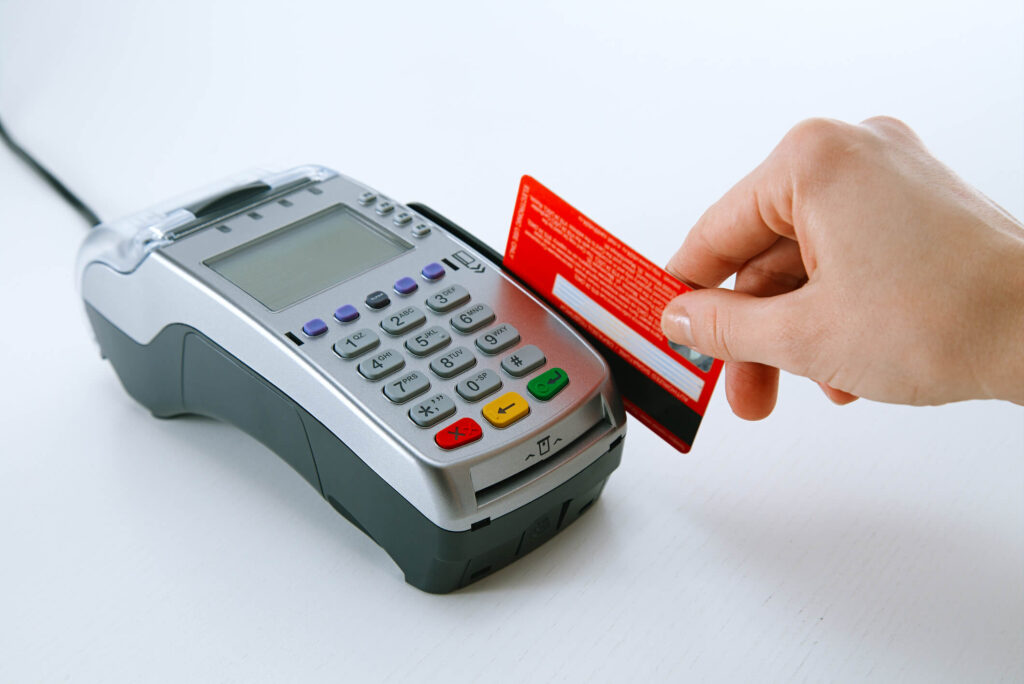Best Credit Card Processing Solutions Tailored for Every Industry

By admin April 23, 2024
Blockchain technology has emerged as a revolutionary force in various industries, and one area where its impact is particularly significant is payment processing. Traditional payment processing systems have long been plagued by issues such as high costs, slow transaction speeds, and security concerns. However, blockchain technology offers a solution to these problems by providing a decentralized and transparent platform for conducting transactions. In this detailed guide, we will explore the key features of blockchain technology, its advantages in payment processing, the challenges it faces, real-world applications, and future trends.
Understanding Blockchain Technology and its Key Features

To understand the impact of blockchain technology on payment processing, it is essential to grasp the fundamentals of this innovative technology. At its core, blockchain is a distributed ledger that records transactions across multiple computers or nodes. Each transaction is grouped into a block and added to a chain of previous blocks, creating an immutable and transparent record of all transactions. The key features of blockchain technology include decentralization, transparency, immutability, and security.
Decentralization is a fundamental aspect of blockchain technology, as it eliminates the need for a central authority to validate and authorize transactions. Instead, transactions are verified by a network of nodes through a consensus mechanism, such as proof-of-work or proof-of-stake. This decentralized nature ensures that no single entity has control over the network, making it resistant to censorship and manipulation.
Transparency is another crucial feature of blockchain technology. All transactions recorded on the blockchain are visible to all participants, creating a transparent and auditable system. This transparency enhances trust among users and reduces the risk of fraud or double-spending.
Immutability refers to the inability to alter or delete transactions once they are recorded on the blockchain. Each block contains a unique cryptographic hash that is generated based on the data in the block and the hash of the previous block. This cryptographic link ensures that any tampering with a transaction would require altering all subsequent blocks, making it practically impossible to modify the blockchain’s history.
Security is a paramount concern in payment processing, and blockchain technology offers robust security measures. The decentralized nature of blockchain makes it less vulnerable to hacking or data breaches compared to centralized systems. Additionally, the use of cryptographic algorithms ensures the integrity and confidentiality of transactions.
Traditional Payment Processing Systems and their Limitations

Before delving into the impact of blockchain technology on payment processing, it is crucial to understand the limitations of traditional payment processing systems. Traditional systems, such as credit card networks and bank transfers, rely on intermediaries to facilitate transactions. These intermediaries, such as banks and payment processors, add complexity, cost, and delays to the payment process.
One of the significant limitations of traditional payment processing systems is the high cost associated with transactions. Intermediaries charge fees for their services, including transaction fees, processing fees, and currency conversion fees. These fees can be substantial, especially for cross-border transactions, leading to increased costs for businesses and consumers.
Another limitation is the slow transaction speeds. Traditional systems often require multiple intermediaries to verify and settle transactions, resulting in delays. For example, international bank transfers can take several days to complete, causing inconvenience and hindering business operations.
Furthermore, traditional payment processing systems are susceptible to security breaches and fraud. Centralized databases that store sensitive customer information are attractive targets for hackers. Additionally, the reliance on intermediaries introduces the risk of fraud or unauthorized access to transaction data.
How Blockchain Technology is Revolutionizing Payment Processing
Blockchain technology has the potential to revolutionize payment processing by addressing the limitations of traditional systems. By leveraging the key features of blockchain, payment processing can become more efficient, secure, and cost-effective.
One of the significant advantages of blockchain technology in payment processing is the elimination of intermediaries. With blockchain, transactions can be conducted directly between parties, removing the need for banks or payment processors. This direct peer-to-peer interaction reduces costs by eliminating intermediary fees and streamlining the payment process.
Additionally, blockchain technology enables faster transaction speeds. Since transactions are verified and settled on the blockchain itself, there is no need for multiple intermediaries to process and validate transactions. This streamlined process allows for near-instantaneous settlement, enhancing the overall efficiency of payment processing.
Moreover, blockchain technology enhances security in payment processing. The decentralized nature of blockchain makes it resistant to hacking or data breaches. Each transaction recorded on the blockchain is encrypted and linked to previous transactions, making it virtually impossible to alter or tamper with the transaction history. This immutability and transparency provide a high level of trust and security for both businesses and consumers.
Advantages of Blockchain Technology in Payment Processing
The advantages of blockchain technology in payment processing are numerous and far-reaching. Let’s explore some of the key benefits that blockchain brings to the table.
- Cost Savings: Blockchain technology eliminates the need for intermediaries, reducing transaction fees and other associated costs. Businesses can save significant amounts of money by leveraging blockchain for payment processing, especially for cross-border transactions.
- Faster Settlement: Traditional payment processing systems often involve multiple intermediaries, leading to delays in settlement. With blockchain, transactions can be settled near-instantaneously, improving cash flow and reducing operational inefficiencies.
- Enhanced Security: Blockchain technology provides robust security measures, making it highly secure for payment processing. The decentralized nature of blockchain reduces the risk of hacking or data breaches, while the use of cryptographic algorithms ensures the integrity and confidentiality of transactions.
- Transparency and Auditability: Blockchain’s transparent nature allows all participants to view and verify transactions. This transparency enhances trust among users and reduces the risk of fraud or double-spending. Additionally, the immutability of blockchain ensures that transaction records cannot be altered or deleted, providing an auditable system.
- Cross-Border Transactions: Blockchain technology has the potential to simplify and expedite cross-border transactions. By eliminating the need for intermediaries and reducing transaction costs, blockchain can facilitate seamless international payments.
- Financial Inclusion: Blockchain technology has the potential to provide financial services to the unbanked and underbanked populations. With blockchain, individuals can have access to secure and low-cost payment solutions, regardless of their geographical location or financial status.
Challenges and Concerns in Implementing Blockchain for Payment Processing
While blockchain technology offers numerous advantages in payment processing, it also faces several challenges and concerns that need to be addressed for widespread adoption.
- Scalability: One of the primary challenges of blockchain technology is scalability. As the number of transactions increases, the blockchain network may face congestion and slower transaction speeds. Scaling solutions, such as off-chain transactions or layer-two protocols, are being developed to address this issue.
- Regulatory Challenges: The regulatory landscape surrounding blockchain and cryptocurrencies is still evolving. Different countries have varying regulations and policies, which can pose challenges for businesses looking to adopt blockchain for payment processing. Regulatory clarity and harmonization are essential for the widespread adoption of blockchain technology.
- Energy Consumption: Blockchain networks, especially those that rely on proof-of-work consensus mechanisms, consume a significant amount of energy. This energy consumption has raised concerns about the environmental impact of blockchain technology. However, there are ongoing efforts to develop more energy-efficient consensus mechanisms, such as proof-of-stake.
- Privacy Concerns: While blockchain provides transparency and auditability, it also raises privacy concerns. All transactions recorded on the blockchain are visible to all participants, which may not be desirable for certain types of transactions. Privacy-enhancing technologies, such as zero-knowledge proofs, are being developed to address this concern.
- User Experience: Blockchain technology is still relatively complex for the average user. The user experience of blockchain-based payment systems needs to be improved to ensure widespread adoption. User-friendly interfaces and seamless integration with existing payment systems are crucial for the success of blockchain in payment processing.
Real-world Applications of Blockchain in Payment Processing
Blockchain technology has already found numerous real-world applications in payment processing. Let’s explore some of the notable examples.
- Cross-Border Payments: Blockchain technology has the potential to revolutionize cross-border payments by eliminating intermediaries and reducing transaction costs. Ripple, a blockchain-based payment protocol, enables fast and low-cost international transfers, making it an attractive solution for financial institutions.
- Remittances: Remittance services, which involve sending money across borders, can benefit greatly from blockchain technology. Companies like Abra and BitPesa leverage blockchain to provide low-cost and efficient remittance services, particularly for underserved regions.
- Micropayments: Blockchain technology enables cost-effective micropayments, which are transactions involving small amounts of money. This opens up new possibilities for monetizing digital content, such as articles, music, or videos, without the need for intermediaries.
- Supply Chain Payments: Blockchain technology can streamline supply chain payments by providing transparency and traceability. By recording payment transactions on the blockchain, businesses can ensure timely and secure payments to suppliers, reducing disputes and delays.
- Peer-to-Peer Payments: Blockchain technology enables direct peer-to-peer payments without the need for intermediaries. Platforms like Venmo and Cash App leverage blockchain to facilitate seamless and instant payments between individuals.
Future Trends and Potential of Blockchain in Payment Processing
The future of blockchain in payment processing looks promising, with several trends and potential developments on the horizon.
- Central Bank Digital Currencies (CBDCs): Central banks around the world are exploring the concept of CBDCs, which are digital representations of fiat currencies issued by central banks. Blockchain technology can play a crucial role in the development and implementation of CBDCs, enabling faster and more efficient payment systems.
- Stablecoins: Stablecoins are cryptocurrencies that are pegged to a stable asset, such as a fiat currency or a commodity. These digital assets provide stability and can be used for everyday transactions. Blockchain technology can facilitate the issuance and management of stablecoins, making them an attractive alternative to traditional payment methods.
- Interoperability: Interoperability between different blockchain networks is a key area of development. The ability to seamlessly transfer value between different blockchains can enhance the efficiency and usability of blockchain-based payment systems.
- Smart Contracts: Smart contracts are self-executing contracts with the terms of the agreement directly written into code. Blockchain technology enables the automation and enforcement of smart contracts, eliminating the need for intermediaries in payment processing.
- Integration with Internet of Things (IoT): The integration of blockchain technology with IoT devices can enable secure and automated payments for various applications. For example, smart homes equipped with IoT devices can autonomously make payments for utilities or services based on predefined conditions.
Frequently Asked Questions
Q.1: What is blockchain technology and how does it work?
Blockchain technology is a decentralized and transparent ledger that records transactions across multiple computers or nodes. Each transaction is grouped into a block and added to a chain of previous blocks, creating an immutable and auditable record of all transactions. Transactions are verified and settled through a consensus mechanism, such as proof-of-work or proof-of-stake.
Q.2: How does blockchain technology improve payment processing?
Blockchain technology improves payment processing by eliminating intermediaries, reducing costs, enhancing security, and enabling faster settlement. With blockchain, transactions can be conducted directly between parties, reducing fees and streamlining the payment process. The decentralized and transparent nature of blockchain enhances security and trust among users.
Q.3: Is blockchain technology secure for payment processing?
Yes, blockchain technology provides robust security measures for payment processing. The decentralized nature of blockchain makes it resistant to hacking or data breaches. Additionally, the use of cryptographic algorithms ensures the integrity and confidentiality of transactions.
Q.4: What are the potential cost savings with blockchain in payment processing?
Blockchain technology can lead to significant cost savings in payment processing. By eliminating intermediaries, businesses can save on transaction fees, processing fees, and currency conversion fees. This is particularly beneficial for cross-border transactions, where traditional systems often incur high costs.
Q.5: Are there any regulatory challenges in adopting blockchain for payment processing?
Yes, there are regulatory challenges in adopting blockchain for payment processing. The regulatory landscape surrounding blockchain and cryptocurrencies is still evolving, with different countries having varying regulations and policies. Regulatory clarity and harmonization are essential for the widespread adoption of blockchain technology.
Q.6: Can blockchain technology handle high transaction volumes?
Blockchain technology faces scalability challenges when it comes to handling high transaction volumes. As the number of transactions increases, the blockchain network may face congestion and slower transaction speeds. However, scaling solutions, such as off-chain transactions or layer-two protocols, are being developed to address this issue.
Q.7: How does blockchain technology impact transaction speed?
Blockchain technology enables near-instantaneous settlement of transactions. Since transactions are verified and settled on the blockchain itself, there is no need for multiple intermediaries to process and validate transactions. This streamlined process enhances the overall efficiency of payment processing.
Conclusion
Blockchain technology has the potential to revolutionize payment processing by addressing the limitations of traditional systems. With its decentralized and transparent nature, blockchain offers cost savings, enhanced security, and faster settlement. While there are challenges and concerns that need to be addressed, the real-world applications and future trends indicate a promising future for blockchain in payment processing. As businesses and consumers embrace the potential of blockchain technology, we can expect a transformation in the way payments are conducted, leading to a more efficient and inclusive financial ecosystem.
